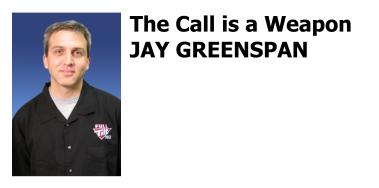 As a Poker Pro and trainer, one of the great benefits of my job is being expected to keep a hand in the game and actually play some poker now and then. I need to apply the ideas and techniques that I learn every day while working with some of the best players in the world. At-the-table research is essential; that’s what I tell my wife and my boss, and so far they’re buying it.
As a Poker Pro and trainer, one of the great benefits of my job is being expected to keep a hand in the game and actually play some poker now and then. I need to apply the ideas and techniques that I learn every day while working with some of the best players in the world. At-the-table research is essential; that’s what I tell my wife and my boss, and so far they’re buying it.
This summer, the “research” went well. I won a $500 buy-in tournament at the Venetian and had a couple of other cashes. All-in-all, I think I played well. I’m happy to have successfully implemented some of what Allen Cunningham, Chris Ferguson and others taught me.
But that’s not to say my play was flawless. I was especially displeased with a crucial hand I played late in Day 1 of the tournament I won. I played it badly, but I think I learned from the mistake.
I was sitting with around 200,000 in my stack, and the blinds were 1,500/3,000 with a 500 ante. At the time the hand took place, I was on a downward trajectory. Two short-stacks to my left had moved in on me after a couple of steal attempts and, after 13 hours of play, I was getting tired.
Then, in early position, I saw Ah-Qs. I opened for a raise to 9,000 and was ready to call an all-in from either of the short stacks. But they folded, as did everyone else until the action reached the blinds.
The small blind had been on a heater, tripling his stack in the previous three orbits. My read on the big blind was that he was a quality player: tight, but smart and not weak. Both blinds called.
The flop was brutal: Ac-Jc-Th. I connected – no doubt about that. But it could have easily hit one of my opponents a whole lot harder. The small blind checked, and then the big blind bet out 18,000.
I tried to interpret the action: what would he bet with? I came up with a vast range. A big draw was a possibility—maybe even Kc-9c for an open-ended straight flush draw. Bottom set and two pair also seemed possible. I also thought there was a chance that he had flopped the nuts. It would be a great time bet out with the Broadway straight. That bet might force me to raise if I had two-pair or a set. I’d be committed to the pot quickly.
If I’d been thinking really clearly at the time, here’s the thought process that I might have come up with: Jay, you could be ahead here, but there are way more hands you’re losing to than beating. And even those that you are beating you’re not that far ahead of. Just fold. It’s okay to get semi-bluffed now and then.
A slightly worse, but still reasonable, way of thinking would have been something like this: Define your hand, Jay. You can raise, and then see what happens. Make a decision once you see how everyone reacts to your aggression, and use that information to make the best choice.
Sadly, however, my thinking had devolved, and this was the best I could do: Shoot. I dunno. Folding doesn’t feel right. I could be ahead. Raising sounds really dangerous, though. Hmm. Errr. “Call.”
And that’s pretty bad. All the systematic thinking I’d been employing for hours went out the window at a crucial moment. I called because I couldn’t think of anything better. Not surprisingly, the hand didn’t work out well, and I lost a lot of chips. I was lucky to rebound from an error of this magnitude.
As I looked back on the tournament in the days that followed, I realized that this wasn’t a unique misstep for me. I have the tendency to fall back on a call because I’m out of ideas. I can’t come up with a plan that I really like, so I settle on a call. In these cases, the call isn’t a strategic choice; it’s a sort of compromise between raise and fold that has none of the advantages of the more extreme actions.
The call, like every other action at the table, should be a weapon. Gavin Smith and Erick Lindgren are masters of purposeful calls – Gavin wrote a great tip on the subject.
Since that tournament, I’ve been more cognizant of my reasons for calling. If there’s a sound strategic advantage for calling, fine. But if not, I’ll look to other options.
Jay Greenspan
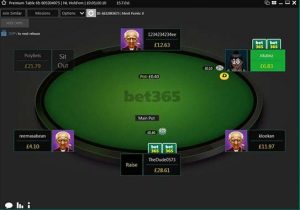 Check out the latest online poker room reviews and ratings. The player reviews are up to date and there’s lots of choice of poker networks including sites operating on the iPoker Network, Microgaming Poker, Chico Poker and WPN Poker Networks.
Check out the latest online poker room reviews and ratings. The player reviews are up to date and there’s lots of choice of poker networks including sites operating on the iPoker Network, Microgaming Poker, Chico Poker and WPN Poker Networks.
 When you’re down to your last few chips and can play for just the cost of the ante or blind, you should often wait to rebuy until after the hand! That’s because there are no better pot odds you than to be able to see the showdown for free with everyone else at the table matching your money with their antes.
When you’re down to your last few chips and can play for just the cost of the ante or blind, you should often wait to rebuy until after the hand! That’s because there are no better pot odds you than to be able to see the showdown for free with everyone else at the table matching your money with their antes.![]() TOP POKER ROOMS FOR USA RESIDENTS – Safe, reputable poker rooms that welcome Amercian players
TOP POKER ROOMS FOR USA RESIDENTS – Safe, reputable poker rooms that welcome Amercian players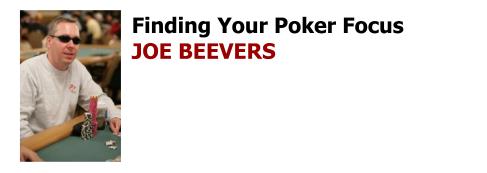
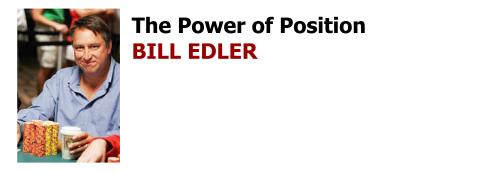
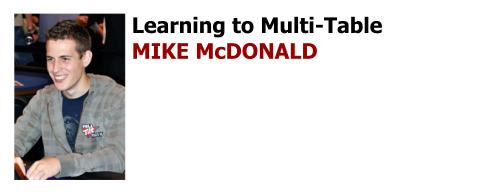
 >>
>> With all but the most powerful of hands, you always can justify just calling, rather than raising, when you’re in a blind position. Remember that you will be in poor position throughout future rounds of betting (except if you’re the big blind against only the small blind). This gives you less of an advantage than it may seem, and makes a raise questionable.
With all but the most powerful of hands, you always can justify just calling, rather than raising, when you’re in a blind position. Remember that you will be in poor position throughout future rounds of betting (except if you’re the big blind against only the small blind). This gives you less of an advantage than it may seem, and makes a raise questionable.
 Compare online poker rooms via the latest in
Compare online poker rooms via the latest in  The Difference Between Aces And Kings In Hold’em
The Difference Between Aces And Kings In Hold’em
 As a Poker Pro and trainer, one of the great benefits of my job is being expected to keep a hand in the game and actually play some poker now and then. I need to apply the ideas and techniques that I learn every day while working with some of the best players in the world. At-the-table research is essential; that’s what I tell my wife and my boss, and so far they’re buying it.
As a Poker Pro and trainer, one of the great benefits of my job is being expected to keep a hand in the game and actually play some poker now and then. I need to apply the ideas and techniques that I learn every day while working with some of the best players in the world. At-the-table research is essential; that’s what I tell my wife and my boss, and so far they’re buying it. Check out the
Check out the  >>
>>